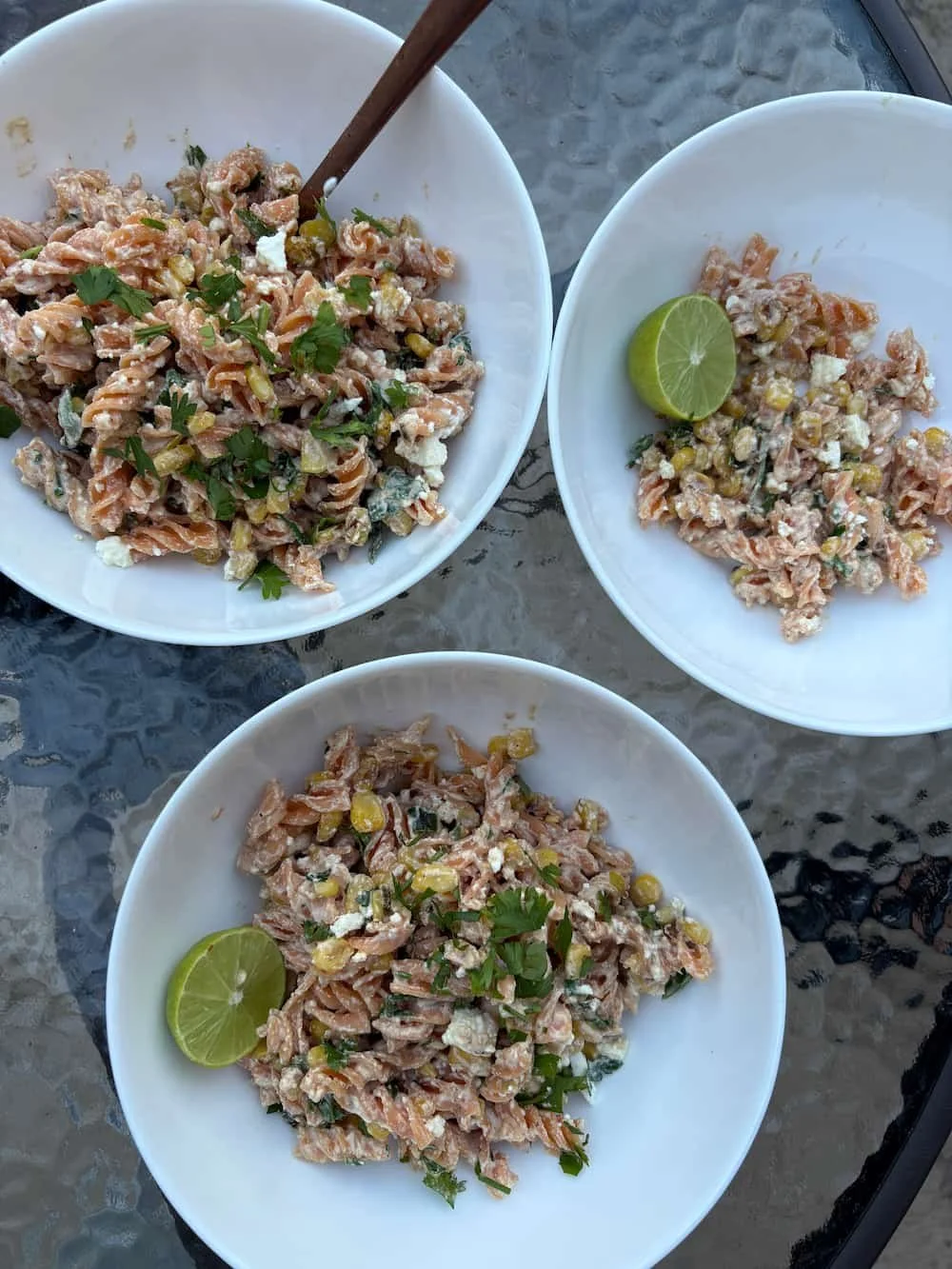
from the blog
Join our weekly newsletter & stay up to date with the latest posts.
Flexible Macro Targets: A Simpler Way to Track Nutrition Without Burnout
Tired of tracking every macro? You don’t need perfect numbers to make progress. Learn how flexible macro targets can help you hit goals without burnout.
What a Slow Metabolism Really Means for Weight Loss
Think you have a slow metabolism? Here’s what that really means, why it happens, and four ways to support fat loss without over-restricting.
What Is Food Noise? How to Quiet Intrusive Food Thoughts
Food noise is that constant chatter in your head about food — this post shares clear, real strategies to quiet it without restriction or rigidity.
How to Stay Grounded in Your Body (& Habits) During Holiday Travel
Travel doesn’t have to derail your routine. Learn how to keep your habits, feel good in your body, and navigate holiday travel with less stress and more ease.
3 Quick & Easy Shrimp Recipes for High-Protein, Macro-Friendly Meals
Shrimp is the ultimate underrated protein—quick to cook, nutrient-dense, and delicious in just minutes. Try these 3 macro-friendly shrimp recipes for easy, balanced meals.
Do You Really Need Electrolyte Supplements? What to Know Before You Buy
Electrolyte powders promise better energy, focus, and performance. But not everyone needs them. Here’s what they do, who benefits, and smarter ways to hydrate.
What to Look for in a Great Online Nutrition Coach
A great online nutrition coach does more than hand you a plan — they listen, collaborate, and tailor strategies to your life. The right coach helps you master the basics, build sustainable habits, and leave with the tools and confidence to succeed long after coaching ends.
How to Enjoy Holiday Treats Without Guilt or Overeating
Enjoy your favorite holiday foods without guilt. Learn simple mindset shifts and mindful eating strategies to stop overeating and feel more in control around food.
What is Body Weight Set Point Theory (and Can You Change It)?
Set point theory suggests your body has a “preferred” weight it tries to maintain, but that doesn’t mean you can’t influence it. With supportive habits, a positive environment, and the right mindset, you can shift your body’s balance and create sustainable change that lasts.
ADHD, Dopamine, and That Snack You Didn’t Mean to Eat: Why We Stim Eat
Stim eating happens when you snack for stimulation, not hunger. For ADHD brains, it’s a common way to chase dopamine. Learn why it happens and how to build better tools.
What Is Food Noise? (And Why It’s Louder With ADHD)
Food noise is the nonstop chatter about food - what, when, and why you eat. Here’s why ADHD makes it louder, and strategies to build more peace with eating.
High-Protein Foods at Aldi: The Best Easy and Affordable Finds
Aldi is packed with hidden high-protein gems. From ready-to-eat meals to protein-packed snacks and wraps, here’s your cheat sheet for easy, affordable, and macro-friendly shopping.
Metabolism 101: Everything You Need to Know About How Your Body Burns Calories
Think your metabolism is “slow”? Coach Kenny explains what metabolism really is, how your body burns calories, and which habits make the biggest impact. Learn the four parts of calorie burn—BMR, NEAT, TEF, and exercise—and discover practical, science-backed ways to support a healthier, more efficient metabolism without gimmicks.
How to Read a Nutrition Label Without Overthinking It
Nutrition labels don’t have to feel confusing or stressful. Coach Zach breaks down how to read calories, macros, fiber, and serving sizes without overthinking, so you can make confident choices that support energy, fat loss, and food peace—whether you’re at home, traveling, or training.
High-Protein Street Corn Pasta Salad: Macro-Friendly Mexican Food
This creamy, tangy, high-protein street corn pasta salad puts a macro-friendly twist on Mexican esquites. Packed with fiber and protein, it’s quick to make, perfect for meal prep, and family-approved (even toddler-approved!). Try this easy, flavourful recipe with flexible spices and toppings for a balanced dish that keeps you full and energised.
8 ChatGPT Prompts to Make Macro Tracking Easier (and Less Stressful)
Macro tracking doesn’t have to feel like a second job. These 8 ChatGPT prompts help you plan meals, prep smarter, and stay consistent with your AI nutrition coach and sidekick.
What It Really Takes to Get Lean (and Stay Lean!)
Want to get lean and stay lean? Coach Zach shares the real trade-offs of fat loss—from calorie tracking to social sacrifices—and why extreme leanness isn’t always sustainable. Learn what realistic fat loss looks like, and how to choose a balanced approach that boosts confidence, energy, and health for the long term.
GLP-1 Medications Beyond Weight Loss: Habits, Health, and Mindset
GLP-1s reduce food noise and support weight loss, but lifestyle still matters. Learn how to protect your health, build habits, and navigate the mental side while using them.













